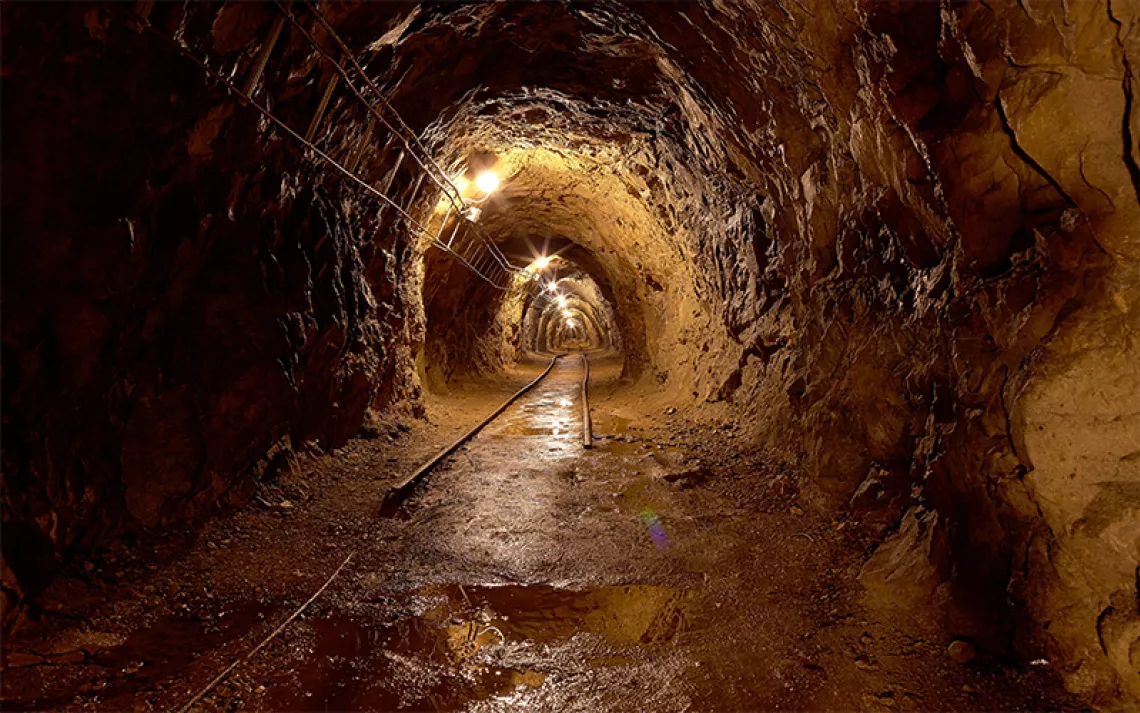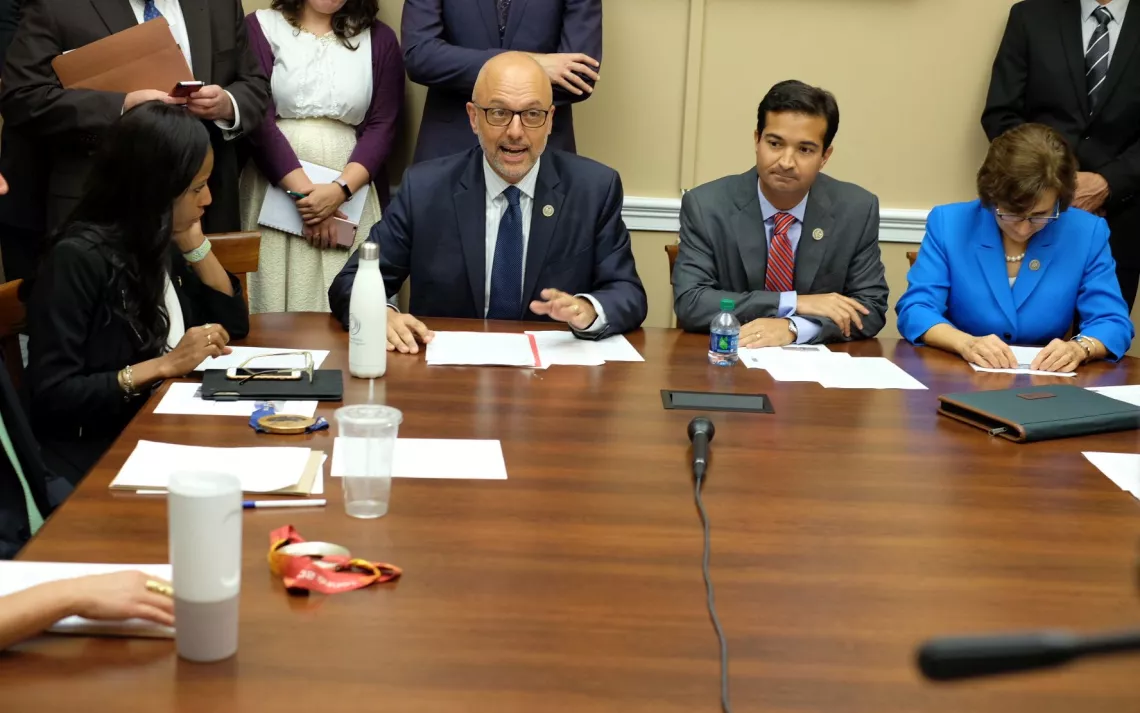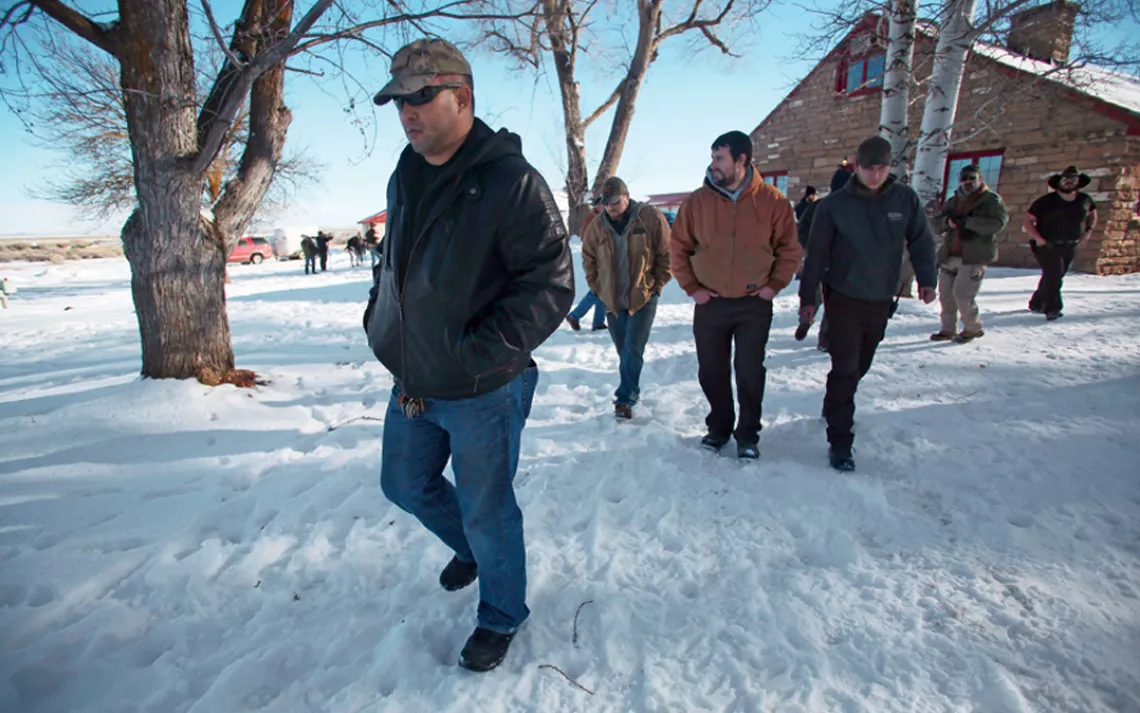How to Greenwash an Attack on a Major Environmental Law
An effort to whittle down the National Environmental Protection Act isn’t new—but the arguments for doing so sure are

Photo by iStock/forrest9
In the next few weeks, Republicans in Congress will begin a major legislative push that critics warn could gut the National Environmental Policy Act, the nation’s foundational environmental law that has protected wildlife, our air, land, and water—and the health of Americans—for the past half century.
There’s nothing new, of course, about attacks on environmental regulations. Since the National Environmental Protection Act (or NEPA) was signed into law in 1970, large industries have targeted it for opposing what they see as their right to operate with the fewest rules possible. In his 1979 campaign for the White House, Ronald Reagan won corporate support with his promise to “expedite decision-making” by axing “rigid and narrow” environmental regulations. Once in office, Reagan went on a budget-slashing spree at federal regulatory agencies of all kinds, and directed the largest cutbacks at agencies charged with enforcing environmental laws. The only thing that makes the current attack on NEPA novel is that it’s being wrapped in a cloak of environmental arguments.
“What’s new today is the messaging,” a House staffer who asked for anonymity told Sierra. “And some Democrats and renewable proponents are buying into it.”
There’s no better example of this greenwashing campaign than what you would have heard had you been watching C-SPAN last March when, from the House floor, one representative praised NEPA and reminded his colleagues that “a healthy environment and a strong economy go hand in hand,” adding, “we can’t have one without the other.”
That was Bruce Westerman, a Republican representative from Arkansas. Westerman considers himself a conservationist, often referencing his degree in forestry as proof. But he’s also called the Paris Agreement “pointless,” supported the construction of the Keystone XL tar sands pipeline, and chastised the EPA for being “out of touch” after the agency required a coal-fired power plant in his district to reduce emissions. Westerman has a lifetime score of just 4 percent from the League of Conservation Voters—the worst rating in his state’s delegation.
Following the Republican takeover of the House of Representatives, Westerman became Chair of the Natural Resources Committee, where he’s using his position to mount a new attack on NEPA under the old banner of “permitting reform.” In keeping with the times, however, the banner is now colored green. For example, Westerman recently claimed that the changes will benefit “renewable energy and with electrification and decarbonization.”
Democratic representative Scott Peters of California appears convinced. Last week he told a reporter, “The boogeyman we always heard about is, ‘Oh you’re trying to change NEPA.’ And yeah, I’m trying to change NEPA. If it keeps us from saving the planet? Yeah.”
Few environmentalists disagree with the basic premise that building out our national electric grid to accommodate utility-scale renewable power projects is needed to reach the climate goal of net-zero greenhouse gas emissions by 2050. The problem with Westerman’s plan, according to Jamie Pleune, a professor at the University of Utah’s Wallace Stegner Center, is that his permitting reforms will do little to help. “These solutions don’t treat the root causes of delay,” she said.
Pleune was part of a team that reviewed some 41,000 Forest Service projects requiring NEPA permitting over a 16-year period. Their study, published last year, found that not only were a majority of decisions made in a timely fashion, but when delays occurred they often resulted from incomplete or poorly crafted plans submitted by the applicants themselves.
Another major cause of delays also has nothing to do with NEPA, Pleune and her team determined. “When it comes to renewable energy projects, including new electrical transmission lines, a lot of them are on private land. For these projects, a lot of the delays arise from local opposition and local zoning ordinances.” The federal government is generally prohibited from overriding those ordinances.
None of this is to say that NEPA works perfectly all the time. Even its greatest supporters endorse changes that would remove bottlenecks—but not if those changes come with Republican proposals that would jeopardize the environment or human health.
There is likely no person better qualified to judge what changes are prudent than Dinah Bear. For 25 years, under both Republican and Democratic administrations, Bear served as chief counsel to the body that oversees NEPA implementation: the Council on Environmental Quality.
Among the modifications Bear proposes is ending the practice of federal agencies routinely hiring private contractors to handle NEPA permitting. “They almost always slow down the permitting process,” she said. Bear is quick to point out that the consultants themselves aren’t incompetent and that sometimes their expertise is necessary. But, as a general rule, she insists, “Nothing can replace the efficiency of an experienced in-house team working together under the direction of upper management that cares about the process and makes it a priority.”
The over-dependence on outside contractors reveals the single most important cause of NEPA delays: a lack of funding. The irony here is that the same groups—and their supporters in Congress—that have worked for decades to kneecap environmental agencies by forcing staff layoffs through budget cuts are now complaining the loudest about permitting delays.
You wouldn’t know it from all the anti-NEPA rhetoric coming from Washington, but the funding problem is already being addressed, according to Bear.
“In my view,” she said, “Congress took the key step to improve the efficiency of the NEPA process in the Inflation Reduction Act.”
She was referring to the record $1 billion allocated to improving federal environmental reviews as part of last year’s historic climate action legislation. That includes $350 million for the Federal Permitting Improvement Steering Council, $30 million for the Council on Environmental Quality, and a whopping $635 million to improve and expedite permitting across relevant federal agencies.
After this historic infusion of funds, the call for “permitting reform” rings hollow to many, including Representative Raúl Grijalva, the Arizona Democrat who chaired the Natural Resources Committee before Westerman and whom Bear calls “one of the most ardent NEPA champions.” The Tucson-area representative told reporters last year, “There’s no question that the urgency of the climate crisis requires quick action.” But, he cautioned, “It would be counterproductive to permanently put the very laws that protect us and our planet at risk to do that.”
 The Magazine of The Sierra Club
The Magazine of The Sierra Club



